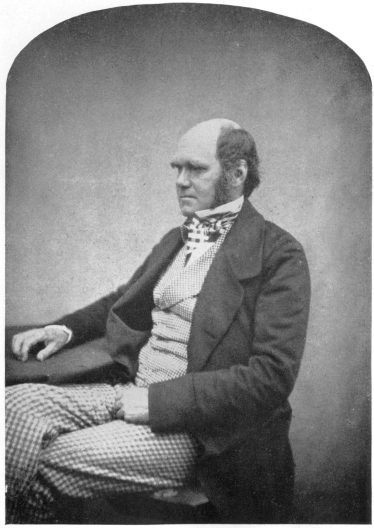
Darwin's letters to be put online
By staff and agencies
16/05/2007
The Telegraph

HMS Beagle in 1841. Darwin sailed on herfrom 1831 to 1836, which included a trip to Ecuador's Galapagos Islands. On seeing the finches on those islands Darwin eventually came up with the Theory of Evolution
Thousands of letters written by Charles Darwin will be put on the internet for the first time tonight, offering fresh insight into the life of the famous naturalist.
More than 5,000 letters will be put on the internetDarwin proposed the controversial scientific theory that all species have evolved over time through the process of natural selection.

Charles Darwin in 1854
The theory, published in 1859 in his work the Origin of Species, contradicted religious beliefs at the time and Darwin ran the risk of being convicted of blasphemy.
The book was the culmination of evidence he had accumulated on his groundbreaking scientific five-year voyage on HMS Beagle in the 1830s.
The ship left Plymouth harbour on December 27, 1831 for South America before travelling to the Galapagos Islands, Tahiti, Australia and Keeling Island in the Indian Ocean.
advertisement
The Beagle returned to Falmouth, Cornwall, on October 2, 1836 and his notes from that journey made him famous when they were published as The Voyage of the Beagle.

Now a major database of 5,000 letters written by and to Darwin up to 1865 is being put on the internet.
The resource, put together by staff at Cambridge University Library, features all the surviving letters from the Beagle voyage which will be available online for the first time.
It also contains all the letters from the years around the publication of the Origin of Species in 1859 including the complete text of a letter written in 1844, in which Darwin famously wrote to Joseph Hooker that admitting to doubts about the immutability of species felt "like confessing a murder".
Darwin exchanged letters with nearly 2,000 people during his lifetime, corresponding with notable scientific figures such as the geologist Charles Lyell, the botanists Asa Gray and Joseph Dalton Hooker, the zoologist Thomas Henry Huxley and the naturalist Alfred Russel Wallace.
Dr Alison Pearn, co director of the project, said the letters contribute to an understanding of the work of these scientific figures and also provide valuable insights into the lives and work of many men and women who would otherwise be unknown.
"Darwin's correspondence provides us with an invaluable source of information, not only about his own intellectual development and social network, but about Victorian science and society in general," she said.
"They provide a remarkably complete picture of the development of his thinking, throwing light on his early formative years and the years of the voyage of the Beagle, on the period which led up to the publication of the Origin of Species and the subsequent heated debates."
The site also features a range of original documents, essays, interviews, and even play scripts, podcasts, and cartoons to complement the many hundreds of Darwin's letters that touch on religion.
Previously unpublished letters on the subject have also been included. The database can be found at www.darwinproject.ac.uk.
Charles Robert Darwin Quick Facts
British naturalist
Birth ...February 12, 1809
Death... April 19, 1882
Place of Birth...Shrewsbury, Shropshire
Known for... Proposing the theory of natural selection
Career...
1831 Graduated from the University of Cambridge with a degree in theology
1831-1836 Sailed around the world as a naturalist aboard the HMS Beagle
1839 Published notebooks containing meticulous observations of animal and plant species and geology made during the Beagle voyage
1858 Published a paper introducing his ideas on natural selection; the paper was presented to the Linnaean Society, a scientific organization in London, concurrently with a similar paper by British naturalist Alfred Russell Wallace
1859 Published On the Origin of Species, his complete theory of natural selection
1871 Published The Descent of Man and Selection in Relation to Sex, which explicitly stated that humans are descended from apes
1872 Published The Expression of the Emotions in Man and Animals
Did You Know ?
Prior to the publication of Darwin's ideas, most people believed that species were eternally unchanging.
By implying that humans had evolved just like other species, On the Origin of Species directly contradicted orthodox theological opinion.
British naturalist Alfred Wallace independently conceived a theory of natural selection identical to Darwin's; both Darwin's and Wallace's theories were presented on the same day in 1858 to the Linnean Society of London.
Initially a medical student at Edinburgh University, Darwin dropped out and entered the University of Cambridge, where he became an unenthusiastic student of theology.
Darwin's father almost prohibited him from joining the Beagle voyage in 1831, for fear that it might lead him away from a future in the clergy.
telegraph.co.uk
